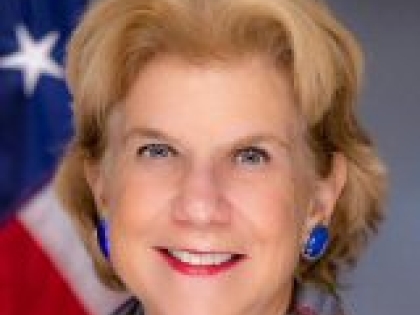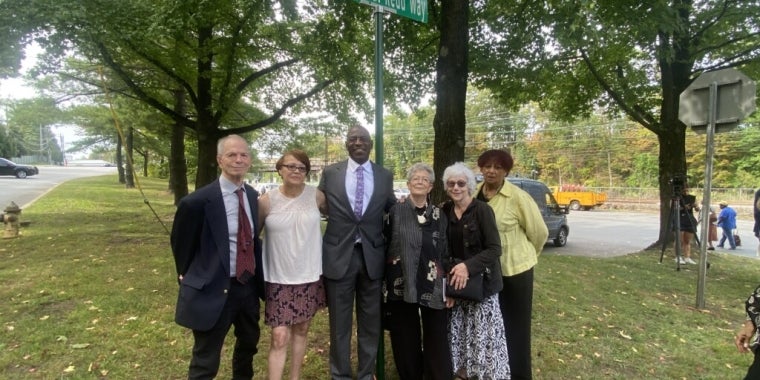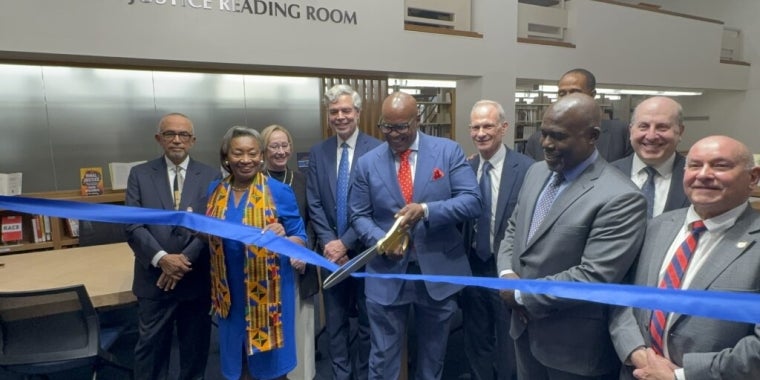
Rye Street Naming Acknowledges a Dark Past and Signals Hope for the Future

Almost 63 years after landmark housing anti-discrimination legislation known as the “Redd Bill” was passed in New York State, local Rye residents and others from around New York State and beyond gathered on Saturday, September 27, 2025 to honor M. Paul Redd Sr. and Orial Redd in the naming of the Rye train station plaza Paul and Orial Redd Way. Long time Rye residents Marion Anderson and Ingraham Taylor were the organizing force behind the event that brought together 200+ attendees, many with family, community and civil rights activist connections to the Redds.
Redd, who began his career began his career as a writer for the Westchester County Press in 1961 and later became its publisher and president in 1986, encountered racial discrimination when he and his wife were denied housing at the Rye Colony garden apartments, just steps away from where they were honored Saturday. The Redds’ pursuit of housing equality was notably supported by local residents, including Lotte Kunstler, the wife of civil rights attorney William Kunstler, and author Dorothy Sterling. Kunstler and Sterling family members were at the event Saturday.
“So when you stop and think about Paul and Orial Redd and their family, think about Paul [Paul Jr., who was at the event] being a child living in a house where there are threats, where in a time where Medgar Evers is being killed, in a time where you’re coming off the heels of civil rights leaders who literally lost their lives for trying to fight for freedom and having the fortitude to fight for what you know is correct,” said Rye civil rights and criminal defense lawyer Mayo Bartlett. Bartlett was one of the master of ceremonies along with Executive Director of the Westchester Human Rights Commission Tejash V. Sanchala, Esq.
“Congratulations to Rye for putting a monument to courage, in this very, very mobile place, to remind us all that, as the negro national anthem says, ‘let us march on ’til victory is won’,” said New York State Senator Andrea Stewart-Cousins, president pro tempore and majority leader, one of a number of speakers to credit Rye for acknowledging the darker part of its history.
“We know whose shoulders we stand on… I know I wouldn’t be standing here without Paul Redd,” said Westchester County Executive Ken Jenkins, who credited Redd earlier this year in an acceptance speech after he became Westchester’s first black county executive. Earlier in his career Jenkins led the Yonkers branch of the NAACP.
“Westchester’s intersection in our national, our American story, is so important, and that’s why I’m proud to be standing here, sitting here, listening to everyone, but more importantly, echoing the praise of M. Paul and Orial Redd, and the work that they continue to do and shine down on us,” continued Jenkins.
Westchester County Legislator Catherine Parker made reference to housing discrimination faced by many in Rye, including Jewish families who as late as the 1990s were often only shown homes in the Greenhaven section of Rye. She also told the story of a perfectly qualified Asian couple who was turned down trying to buy an apartment at Rye Colony.
“Our street names routinely honor prominent European settlers and later, white residents,” said Rye Mayor Josh Cohn. “Our very municipal name is borrowed from England. Many white residents would reflexively picture our predecessors in centuries past as whites of European descent, but thanks to the efforts of the Rye Historical Society and Jay Heritage, we know there’s an important embedded history of both African Americans, beginning with enslaved African Americans, and Native Americans, here in our city.
And now let’s think of Orial Redd, with more than a century of prior family connection to Rye, being denied housing in Rye. It was Northern Jim Crow by common practice, plain and simple, Orial and Paul overcame that with the help of others, some in Rye, some of them Jews with their own experience of Westchester discrimination.”
This street naming is not a gift, it’s recognition of a gift by the Redds to us all,” said Cohn. “Now is a particularly important moment for this event. We face a movement dedicated to a national and I’ll use the same word George [Latimer] did – a national white washing – an unfortunately accurate term. In the face of this rush to amnesia, we’re here today remembering. It’s the right thing to do."



